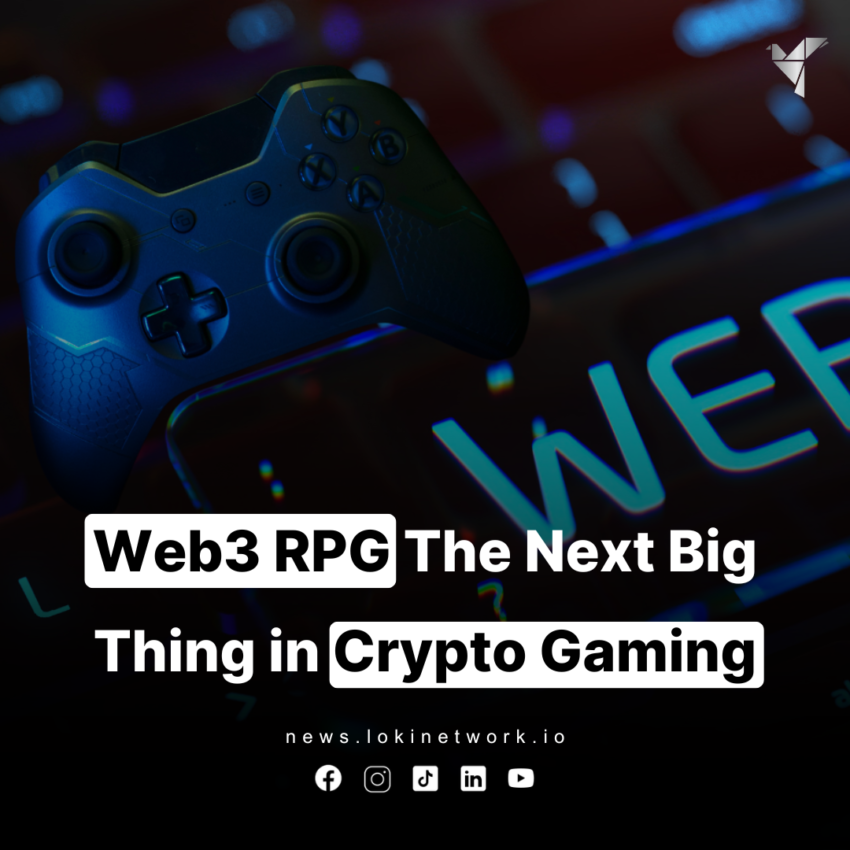Explore how this Web3 RPG is blending blockchain technology and gaming, aiming to revolutionize the crypto gaming landscape.
This game allows users to own and personalize digital real estate, creating options for revenue and community building in a blockchain-powered virtual environment.

Moon Tropica mixes classic gameplay with Web3 technology, giving users the ability to own digital assets and monetise their experiences in a community-driven virtual environment.
As the $244 billion gaming industry embraces Web3 technology, developers have a unique challenge: creating immersive, community-driven worlds that seamlessly include blockchain aspects like as non-fungible tokens (NFTs) and token-based economies.
Traditional games provide nostalgia and engagement, but lack the possibility for ownership and profit that Web3 offers. Unlike traditional games, which lock objects and accolades within centralized systems, Web3 allows users to direct their digital experiences, potentially adding real-world value.
However, many blockchain-based games are difficult to understand and enjoy, particularly for players who are inexperienced with cryptocurrency. The objective is to strike a mix between nostalgia and innovation, integrating blockchain mechanics in a way that seems natural rather than forced. Moon Tropica, a community-driven open-world role-playing game with Web3 integration, exemplifies this method.
Nostalgic gameplay meets Web3 technology
Moon Tropica draws influence from classic games such as Zelda and Animal Crossing, instilling a strong sense of nostalgia. It adds a fresh twist by using current blockchain dynamics, rather than just paying tribute. Players are allowed to explore a vast open world, unlocking missions, overcoming dungeons, and solving riddles.
Moon Tropica stands out from other Web3 products due to its dynamic plot. By mixing real-world crypto events and meme culture, the game is constantly refreshed, creating a new attraction for crypto aficionados. This method provides a live, breathing environment that reflects current trends and keeps gamers interested.
Central to the Moon Tropica’s metaverse represents digital real estate. Players can own land, allowing for personalization, community involvement, and revenue. Desirable sites fetch higher pricing and provide more income opportunities. Players can take advantage of sponsored land parcels from well-known corporations or celebrities.
The CAH token is at the center of Moon Tropica’s economy, serving as a utility token for in-game transactions, ownership, and governance. CAH is used by players to purchase and sell assets. Stake in pools, and unlock advanced game features, contributing to a robust token economy.
Moon Tropica has player-versus-player (PvP) conflicts in which players can stake a percentage of their CAH tokens or specialist NFTs. Before entering the arena, participants may assess their opponents and determine how much danger they are prepared to take, adding a strategic aspect to the game.
Moon Tropica also offers many customization options. The game has comprehensive crafting capabilities that let players to customize their equipment, armor, and weaponry. Players may monetize their ingenuity by selling unique goods on the marketplace.
Building communities, one pixel at a time
The project follows an open and transparent format, with the community playing an important part in shaping the game’s progress. Feedback is not only appreciated, but necessary for shaping Moon Tropica’s gameplay, design, and future additions. This collaborative method builds trust and a shared sense of responsibility among the players.
Looking ahead, the developers intend to establish a multichain architecture to provide scalability and accessibility for a worldwide player base..

Source: Moon Tropica
Moon Tropica combines traditional gameplay with Web3 technology, resulting in a dynamic, community-driven universe in which users actually own their experiences. As the gaming industry evolves, initiatives like Moon Tropica may set a new standard for Web3 games by prioritizing accessibility, community control, and true ownership of in-game materials.
Read more: Jump Crypto Unit Settles with SEC for $123M


Ethereum news